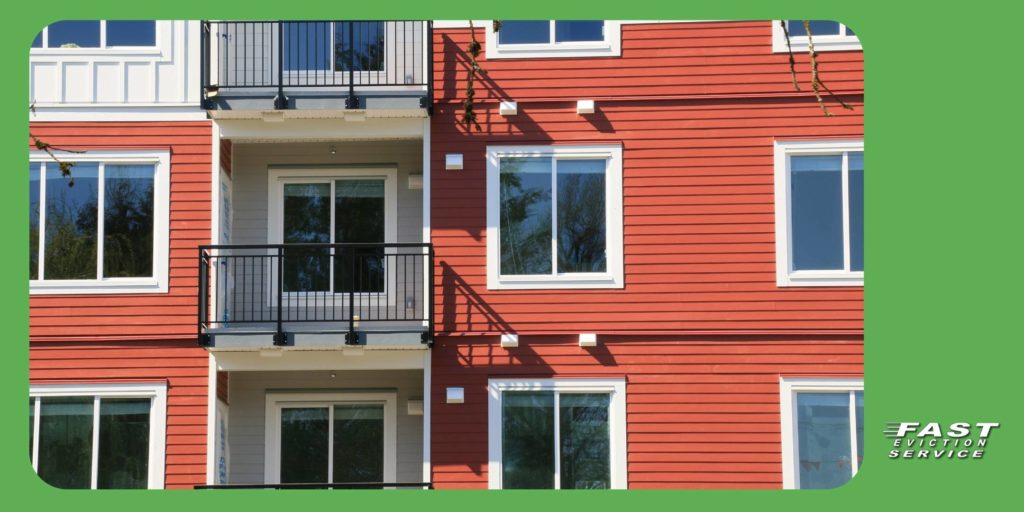Updated 01/02/25
Renting a room in Los Angeles can be a lucrative way for homeowners to supplement their income, but it’s crucial to understand the city’s legal landscape, especially under the Los Angeles Rent Stabilization Ordinance (LARSO). The rules for room rentals in Los Angeles vary depending on factors such as the type of property, the amenities offered, and whether the home qualifies as a boarding house. If you’re a landlord renting out a room in a single-family home built before 1978, you may fall under LARSO’s regulations—even if it’s not immediately apparent.

This article will explore key considerations for landlords engaging in room rentals in Los Angeles, with a focus on properties subject to LARSO. Whether you’re renting out a single room or multiple rooms, understanding these rules is essential to avoid legal pitfalls and ensure compliance.
Table of Contents
- What Is LARSO and Why Does It Matter for Room Rentals?
- Which Properties Are Covered by LARSO?
- Understanding Boarding Houses and Their Legal Implications
- Room Rentals in Single-Family Homes
- Risks of Non-Compliance with LARSO
- Frequently Asked Questions
What Is LARSO and Why Does It Matter for Room Rentals?
The Los Angeles Rent Stabilization Ordinance is a set of laws designed to regulate rental rates and protect tenants in the city. LARSO applies to many types of properties, including apartments, duplexes, and certain single-family homes. For landlords renting out rooms, understanding LARSO’s reach is critical because failure to comply could result in fines, lawsuits, or other legal troubles.
LARSO’s applicability often hinges on whether the property was built before 1978. Homes constructed before this date may be subject to rent control if they qualify as boarding houses or other rental configurations. This distinction is especially important for landlords offering room rentals in Los Angeles.
Which Properties Are Covered by LARSO?
LARSO covers a broad range of properties, including:
- Apartments
- Condos and townhouses
- Duplexes
- Single-family homes with multiple units on the same lot
- Rooms in hotels, motels, and boarding houses occupied for 30 days or more
- Residential units attached to commercial buildings
- Mobile homes and recreational vehicles
If you’re renting out a room in your house, you need to determine whether your property falls into any of these categories. For instance, a single-family home with multiple rented rooms could qualify as a boarding house under LARSO if it provides shared living spaces like kitchens or bathrooms.
Understanding Boarding Houses and Their Legal Implications
A boarding house is typically defined as a single-family home where multiple rooms are rented out, and tenants share common spaces such as bathrooms and kitchens. California law offers a nuanced definition, but the key takeaway for landlords is that renting multiple rooms in a home built before 1978 could require LARSO registration.
If your property qualifies as a boarding house, you’ll need to register it with the city to ensure compliance. Additionally, tenants renting rooms in a boarding house are afforded many of the same legal protections as traditional renters. This includes rules around eviction, rent increases, and habitability standards.
However, if you rent out just one room in your home, and the room does not include a private kitchen or bathroom, you may not need to register under LARSO. This exemption applies only if the property remains your primary residence and you rent the room to a single tenant.
Room Rentals in Single-Family Homes
For landlords renting out rooms in single-family homes, the distinction between a “lodger” and a “tenant” is crucial. Under California law, a lodger rents a room in an owner-occupied property, and the homeowner retains the right to access the rented space. This setup often exempts the rental from LARSO regulations, provided that only one room is rented.
If you rent out multiple rooms, your home could be classified as a boarding house. In such cases, you’ll need to adhere to LARSO’s requirements, including registration, adherence to rent control limits, and following legal procedures for eviction. Ensuring compliance with these rules protects you from legal consequences and helps maintain a positive relationship with your tenants.
Risks of Non-Compliance with LARSO
Failing to comply with LARSO can lead to significant legal and financial risks. Renting out rooms in violation of LARSO regulations can result in the following consequences:
- Illegal Unit Designation: If your rental is deemed an illegal unit, tenants may be entitled to recover all rent paid during their occupancy.
- Eviction Challenges: Evicting a tenant from an unregistered or non-compliant unit can become legally complicated, exposing landlords to lawsuits.
- Fines and Penalties: The city can impose fines for failing to register or adhere to LARSO guidelines.
To avoid these pitfalls, landlords should ensure their rental setup aligns with the law. Consulting with a legal professional or property management expert is always a good idea.
Frequently Asked Questions
Do I need to register my home under LARSO if I rent out a single room? If you’re renting out one room in your owner-occupied home, and the room does not have its own kitchen or bathroom, you likely do not need to register under LARSO. However, renting multiple rooms could change this classification.
What happens if my rental is considered an illegal unit? If your rental is deemed illegal, tenants can recover all rent paid during their tenancy, and you could face additional legal and financial penalties. It’s essential to ensure your property complies with LARSO if applicable.
What is the definition of a boarding house under California law? A boarding house is a single-family residence where multiple rooms are leased to tenants who share common spaces such as bathrooms and kitchens. If your property fits this description, it may fall under LARSO’s jurisdiction.
By understanding and complying with LARSO, landlords can navigate room rentals in Los Angeles confidently, ensuring a positive experience for both themselves and their tenants.





